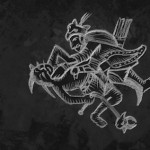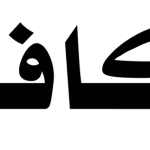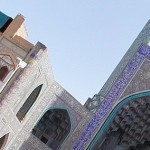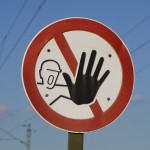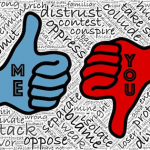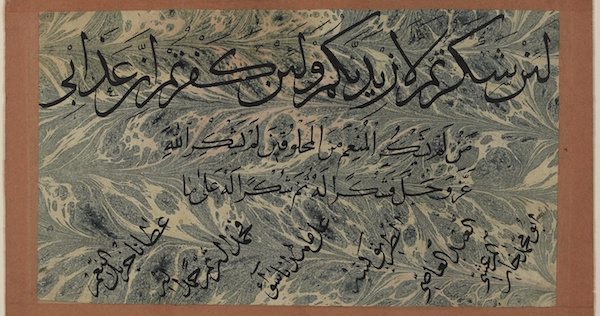
Farouk A. Peru (Muslim blogger at Person al Islam): I’m curious to know how you see Islamic Reform happening. What are the strategies and end goals from your perspective?
Kaveh Mousavi (atheist ex-Muslim blogger at On the Margin of Error): The way I see it, Islamic Reform has happened in two broad categories. One is theological reform, which aims to introduce new theological concepts and methodology. The other is political reform, which usually sticks to a traditional theology and methodology, but tries to inject modern values and concepts into them. It seems to me that the majority of reformists belong to the second category. I’m more hopeful about the first category, the examples of which include the Egyptian Nasr Hamid Abu Zayd or the Iranian Abdolkarim Soroush. Do you agree with this categorization? And am I right in thinking Quranism belongs to the first category as well?
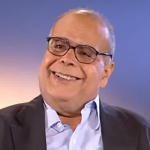
Farouk: Ah yes, I like your breakdown into theological and political reforms. Political reforms are more accessible, sure. That’s why reformists tend to go for them. However, without theological reforms, the same type of ulama will be at the helm of the Ummah. This poses a problem because their education system is not geared for a modern, thinking Ummah. It requires the Ummah to be muqallideen (blind followers). I see the two aspects of reform to be inextricable.
I like Nasr Abu Zayd’s approach in seeing the Quran as a literary text. I do feel that ‘stripping’ of a divine aura (at least while one is analysing the text) to be necessary in order to understand the text’s themes and styles. As it is, it is a very sensitive issue in the Muslim world to approach the Quran in this manner. That’s why the Quran remains largely sang instead of contemplated.
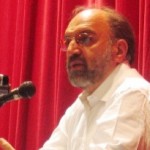
My apologies but I forgot Shoroush’s mode of thinking. I learnt it about 8 years ago and something tells me it’s about text and interpretation, Perhaps you could enlighten me.
Kaveh: Soroush basically says that Quran should not be considered a direct transcription of the word of Allah, but Muhammad’s interpretation of His word. It’s very similar to Zayd’s mode of thinking.
Farouk: I see. As a Quranist, I promote free-thinking about the text. I believe in spaces of thought rather than dogma. All readers have equal rights to interpret. So yes, I guess I am in the first category.
Kaveh: Then I think we can see a similarity between your method and Zayd’s and Soroush’s, and that is all three try to go beyond an absolutist reading of the scripture. The political reform still considers the text an absolute, and only tries to read it in a more progressive way.
Farouk: Aha, so Shoroush takes it one step further by saying even the text is interpretation. This is similar to the famous French Algerian reformist thinker, Mohammed Arkoun. Arkoun considered that even reducing the Quran into a text was an innovation. It should have rather been allowed to evolve alongside Arabic language. My position is way more conservative. I believe Muhammad was not privy to the choice of words and arrangement. I believe so because the Quran indicates he had to seek knowledge in order to understand its full import. Of course, this is circular logic because it is the text talking about itself.
Kaveh: I think absolutism is a trap, and ultimately, if reformists don’t tame the beast of absolutism, there will be always something lacking. Do you agree?
Farouk: I do agree with that. I have a saying, ‘Religion is personal. Those who claim it is public are really using their own personal understandings without claiming so’. In other words, if you say ‘Islam says’ or ‘The Quran says’, by that very act, you are appropriating the text for a specific purpose and in doing so, you are taking a position and thus interpreting.
I believe the reformist needs to let go of this idea that the ‘original community’ is in any way authoritative over the Ummah’s destiny. If we read their narratives, they were imperfect human beings struggling with a new text in their midsts. Who knows whether or not they got it right. I certainly would not like to speculate. I’d much rather interpret for myself on my own terms.
Kaveh: Actually, I did want to refer to Quran the way you did. One problem about erasing absolutism from Islamic thinking is that the Quran seems to present itself in quite an absolutist manner. Of course, I understand that you emphasize the personal reading of the Quran, but at the same time, I have read the Quran as a Muslim and as an atheist, and in both cases, it seemed to me to be a very absolutist books which doesn’t allow diverging interpretations.
Now, I guess I can ask two different but relevant questions. One, do you believe I’m misreading the Quran? Two, do you believe that it’s a challenge for people like you to convince Muslims of your non-absolutist views? Imagine I am a conservative Muslim — how would you try to change my mind?
Farouk: To answer your questions, yes I cannot agree that the Quran promotes an absolutist view. Sadly it is a challenge to convince Muslims of divergent interpretations. This is again due to the intellectually deficient education system. We have people teaching the Quran who have been stuck to a thousand-plus-year-old tradition, and departing from that tradition is seen as heresy.
May I ask you though, what part of the Quran did you find to promote absolutism?
Kaveh: Three things, basically. In many verses, the Quran emphasizes that this is the “last” book, the “last” prophet, and that it is the “final” version of the God’s religion. Secondly, in many verses Christians and Jews (and other ‘followers of the book’) are presented as having been handed down holy books, but they later “manipulated” those books. I think it’s not a huge leap of logic to think that their mistake was basically diverging from the original meaning of the text. Thirdly, as we are having this chat in real time, I can’t look them up. But there were certainly a number of verses which directly warned against changing or trying to change the meaning of Quran, one even addresses and warns the Prophet himself. All of these lead me to think that the Quran is a book which is quite strict about its meaning and how its followers should stick to the “original” reading.
Why am I wrong? Which parts of the Quran lead us to think the book is open to diverging readings?
Farouk: Aha ok, allow me to comment on your three points before I present my case.
For the first point, the Quran does not mention even once it is the last book, final version etc. The closest we have is Ch 33 Vs 40 which calls Muhammad ‘the seal of the prophets’. Interestingly here, the word ‘last’ (aakhir) is not used either and in early Islam, ‘seal’ was used to mean the perfection of prophethood.
Second, on the Jews and Christians having corrupted books. Once again this is not present in the text. I suspect you may be thinking of commentaries about certain verses which ultimately became common belief.
Thirdly, I have also never seen any verses warning the Prophet about changing the meaning at all. I am not thinking literally by using the word ‘meaning’ (al-ma’ana) but even a similar meaning. It does tell the Prophet to seek out knowledge before making any decision about what he is uncertain of.
For me, the Quran is against absolutist thinking because of what I call ‘ontology of signs’. What this means is, in the world of the Quran, readers come to know reality by virtue of signs (ayaat). This word appears in the Quran about 300 odd times, and if you analyse its usage, it is very personal in nature. People experience signs, and they either believe or not. Hence it is impossible to elicit someone else’s experience of signs. That’s why I would never call a person “kaafir” (concealer of signs, essentially).
Furthermore, the Quran’s own verses testify to its sanctification of diversity. For example, 29/69 uses the word ‘subulana’ (our paths) rather than the singular. 2/148 mentions that each of us has an expression to which God turns us. 5/48 mentions that each of us has a disclosure and a method.
Kaveh: I think the most important verse which refers to religion being complete and finished, is verse three of al-Ma’ida which says “This day have I perfected your religion for you, completed My favour upon you, and have chosen for you Islam as your religion”. And I was able to look this one up, but there are many like it. Also, I guess you are right about no verses directly mentioning that the New and Old Testaments were corrupted, but it’s hard not to see how the commentaries are wrong when you look at the general narrative. For example, in surah al-Omran, it seems the story is basically “we sent true books to these tribes, but they didn’t follow them through, and corrupted their meanings”, in the same surah, in verse 78, it seems that they are corrupting the meaning of the book by pretending that what they read is the God’s word. The same verse seems to warn against changing the meaning of the holy books too.
But beyond these verses, I have two qualms with your points. Firstly, yes, there are many references to the “signs” in Quran, and it seems everything from nature to the book itself are signs, however, where’s the indication that you are free to have your personal interpretation of them? It read to me that the signs mean that Allah is great, and any other interpretation is not allowed.
Secondly, isn’t there some contradiction in you not calling anyone “kaafir”, while the book itself refers to people by that moniker constantly and promises everlasting torment for them? If there are no “kaafirs”, why are they mentioned so many times?
(To be continued next week)
Quran image by calligrapher Abu Muhammad Khan al-Ma’rashi – Library of Congress Selections of Arabic, Persian, and Ottoman Calligraphy collection, Public Domain; Abu Zayd image via YouTube screenshot; Soroush image by Hessam M. Armandehi | CC 2.0 Generic.

